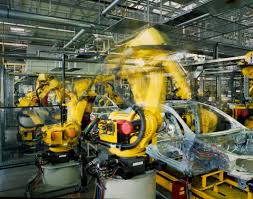Nigeria has recorded giant strides especially in sustaining her automobile policy so says Mr Aminu Jalal, the Director-General of the National Automotive Design and Development Council (NADDC), on Tuesday. He said 14 assembly plants, which existed before the automotive policy, had been revived.
Jalal made this disclosure in Lagos at a stakeholders meeting of the Committee on Implementation of the Nigerian Auto Policy.
He boasted that the policy objective of bringing back the automobile assembly plants had been achieved.
The director-general said that new entrants in the automobile business were also doing well, adding that the council had suspended the issuance of new assembly plant licences.
He hinted of the future plans which includes partnering with a bank to run a vehicle financing scheme to enable Nigerians buy made-in-Nigeria vehicles with ease.
He, however, expressed concern at the huge cost of operating a vehicle assembly plant, saying that the investment stages had been broken down into three.
“The reason why we break the assembly operations into three is that a new vehicle assembly plant is quite expensive to set up.
“If you are setting it up, the minimum you can do will cost you over $50 million (N11 billion) for about 10,000 units per year.
“After about a year, they start with SKD 2 (Semi-Knocked Down), which is a painted body, bringing in the internal and external fittings.
“Then you move to SKD1 where you have a body that is not painted, you have to paint it and so on.
“Then you move to CKD 1 (Completely- Knocked-Down) when you have to weld all the pieces together, paint and do the assembly.
“ That is a transition in 12 months to the next phase,’’ he said.
Jalal, however, said that Innoson Motors had already started doing CKD.
He said Ashok-Leyland buses were CKD while Peugeot Automobile Nigeria (PAN) already had the full complement of investment in CKD and would start CKD in 2016.
-Emmanuel Ikechukwu














